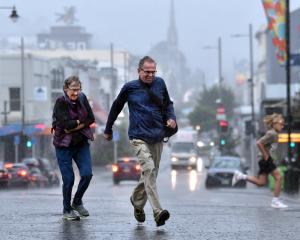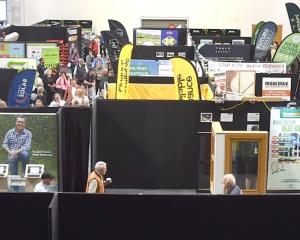
Rose Callender (68) and Lorna Eckhold (72) met through the Stroke Foundation after both their husbands had strokes.
After years of struggling to come to terms with their new normal, being able to talk to someone going through the same changes helped them to feel less alone.
Mrs Callender said her husband Peter (70), who was a truck driver, was at work when he suffered either a stroke or seizure.
That was on December 19, 2016.
‘‘The next day — the 20th — he lost his licence and his livelihood,’’ she said.
‘‘One day he had everything and the next day it was just all taken away from him.’’
Mr Callender was diagnosed with cerebral amyloid angiopathy, a condition in which proteins called amyloid build up on the walls of the arteries in the brain.
He was more recently diagnosed with vascular cognitive disorder, which was affecting his memory.
Mr Callender said his life ‘‘ground to a halt’’.
‘‘The last thing I expected was to have a stroke — little did I know what was coming.’’
Mrs Callender said that for two years, they felt alone.
‘‘We did not know where to get help — we absolutely struggled.
‘‘There was anger and depression. You name it, we lived it.’’
It was a feeling Mrs Eckhold and her husband Murray (73) knew all too well.
Mr Eckhold had not long retired when he was diagnosed with cancer, and while leaving the hospital after having radiation therapy in 2017, he suffered a stroke.
‘‘For Murray, it was sheer frustration because he could not do [what he used to be able to do].
‘‘You are stuck in this little bubble that you don’t get out of,’’ Mrs Eckhold said.
Mr Eckhold said he would not wish what happened to him on anybody.
‘‘Everything comes to a stop.’’
The sudden life changes also took a toll on Mrs Eckhold.
‘‘I felt quite cheated, because I have a son in Australia and we planned to go over when [Mr Eckhold] retired — that won’t eventuate,’’ she said.
‘‘I guess that played on me for a long time.’’
It led to feelings of anxiety and depression for both of them, Mrs Eckhold said.
Mrs Callender said a turning point for her and Mr Callender came when they saw an article in the Otago Daily Times in 2018 about the ‘‘Champions of Stroke’’ art exhibition, organised by stroke survivor Dave Griffin and his wife, Brenda, and they decided to attend.
‘‘Brenda took us aside and listened, and we never looked back.’’
There they were put in contact with Stroke Foundation community stroke adviser Kathy Clark, who organised monthly coffee group catch-ups and workshops with stroke survivors and their carers.
It was through those that the Callenders and Eckholds met.
The group burst into laughter when thinking about their early meetings, where their friend, a member of the group, had a love of pine cones.
‘‘It does not matter where we were, we would stop and have to get out of the car and start picking up ... pine cones,’’ Mr Callender said.
While the group changed, the four of them always met once a month at different locations for coffee.
Mrs Eckhold said talking to others who understood what she was going through was ‘‘amazing’’.
It meant their struggles were ‘‘cut in half’’.
‘‘Nothing is as bad as it seemed in the first place.’’
Mr Callender agreed.
‘‘Having Murray and Lorna, it’s like a bit of a linchpin because we all get on.’’
A foundation workshop, which helps family carers build resilience and boost wellbeing, was due to be held in Dunedin today, however it has been cancelled due to the Alert Level 4 lockdown. It will be rescheduled.














